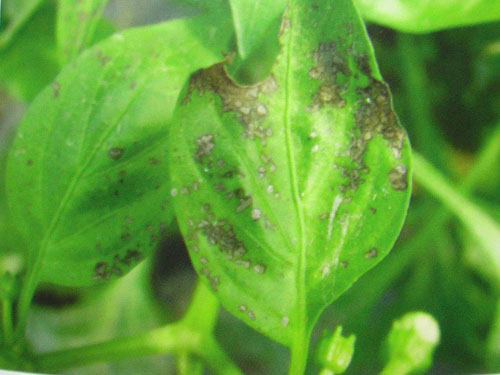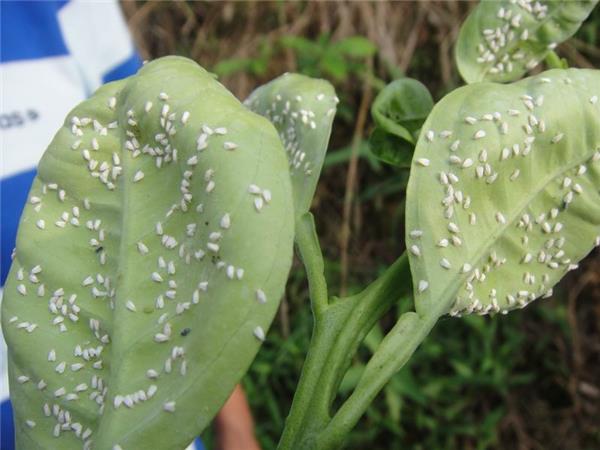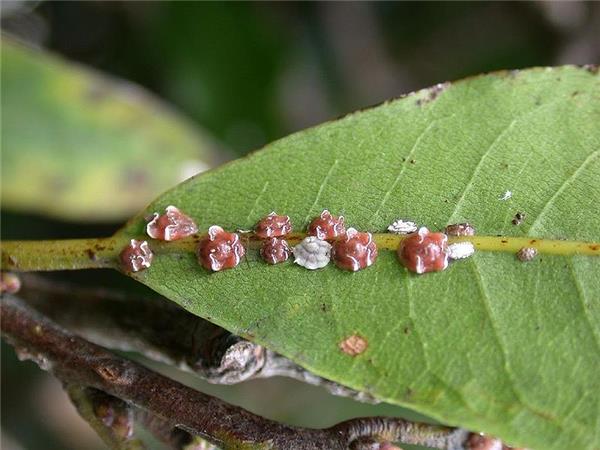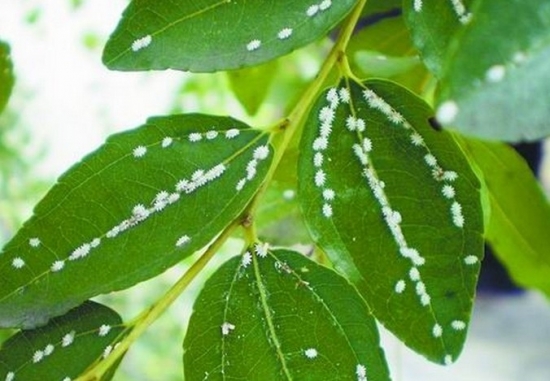Common insect pests of potted flowers and their control methods
Before learning how to prevent and control diseases and insect pests, we must have a more comprehensive understanding of the diseases and insect pests that may be infected by flowers and the effective tools for the prevention and control of diseases and insect pests.

1. Common flower diseases and insect pests
1. Aphids: this is the most common pest in flowers. There are many kinds of aphids, often clustered in the young part of the flower body, piercing and sucking mouthparts into the flower body to absorb juice. The harm range of aphids is very wide, such as chrysanthemum, tricolor, dahlia, rose and so on. In the life process of aphids, aF excreta contains honeydew, which provides favorable conditions for the reproduction of other harmful microorganisms, resulting in black leaves and affecting photosynthesis. Therefore, aphids should be eliminated in time.
two。 Red spider: there are few individuals, but the harm range is very large, such as chrysanthemum, dahlia, azaleas and so on. Because of its small size, this pest should be discovered in time and controlled as early as possible.
3. Beetles: there are many kinds of insect pests, which can endanger many kinds of flowers, such as cactus, rose, oleander, sweet-scented osmanthus and so on. The secretions of beetles also contain honeydew, which can guide the growth.
4. Whitefly: whitefly is very small, only I mm long, white, fast reproduction, so the harm is serious. Plants damaged by whitefly can also lead to the proliferation of harmful microorganisms and make the leaves mildew and turn black.

II. Common drugs for pest control
1. Bordeaux liquid: it is a good protective fungicide made of cupric sulfate, quicklime and water. According to the amount of cupric sulfate and quicklime, it can be divided into equal type (1:1), half-quantity type (1VR 0.5), multi-quantity type (1:3) and double quantity type (1:2).
two。 Stone-sulfur mixture: it is also a protective fungicide, which is made from quicklime, sulfur powder and water at the proportion of 1:2:10. The original liquid is a dark reddish brown transparent liquid, which smells like rotten eggs and is alkaline.
3. Trichlorfon: it is a kind of organophosphorus preparation with high efficiency and low toxicity, which has strong stomach toxicity and contact effect on pests.
4. Dichlorvos: it is a kind of organophosphorus preparation with high efficiency and low toxicity, which has strong contact, fumigation, stomach toxicity, wide insecticidal range, fast speed and short efficacy period.
5. Dimethoate: a broad-spectrum organophosphorus pesticide with high efficiency and low toxicity, with contact, internal absorption and stomach toxicity. Generally, 40% EC 1000-1500 times or 60% wettable powder 3000-5000 times are sprayed to control aphids, red spiders, leafhoppers, leaf miners, whiteflies and other pests.
6. Streptomycin: White powder, usually sprayed with 100mg / L concentration, root irrigation or injection, to prevent and control bacterial ☆ ☆ disease, downy mildew and so on.

Third, skillfully manage family potted flower pests (simple and pollution-free)
1. Soak cut tobacco or cigarette butts in water, wait for the water to turn brown, spray the branches and leaves of potted flowers with water, control whitefly and aphids; irrigate pot soil, you can control ants.
two。 Put garlic, onion or onion scales in water, soak for 24 hours and filter, spray potted flowers with filtrate for 2-3 times, which can kill red spiders and aphids.
3. Spray the dishwashing detergent on the branches and leaves of potted flowers according to the ratio of 1 to 500, which can effectively kill aphids.
4. The plant ash was soaked in water for 2 days and its clarification solution was sprayed on the damaged branches and leaves of potted flowers, which could kill aphids.
5.

Family flower cultivation is generally recommended to use some non-toxic, more environmentally friendly methods to prevent and control diseases and insect pests. After all, life now promotes the concept of "green environmental protection", and flower cultivation is the same.
Related
- Wuhan Hospital Iron Tree Blooming Result Was Instantly Frightened by the Gardener Master
- Which variety of camellia is the most fragrant and best? Which one do you like best?
- What is the small blue coat, the breeding methods and matters needing attention of the succulent plant
- Dormancy time and maintenance management of succulent plants during dormancy
- Minas succulent how to raise, Minas succulent plant pictures
- What are the varieties of winter succulent plants
- How to raise succulent plants in twelve rolls? let's take a look at some experience of breeding twelve rolls.
- Attention should be paid to water control for succulent plants during dormant period (winter and summer)
- Watering experience of twelve rolls of succulent plants
- Techniques for fertilizing succulent plants. An article will let you know how to fertilize succulent plants.



